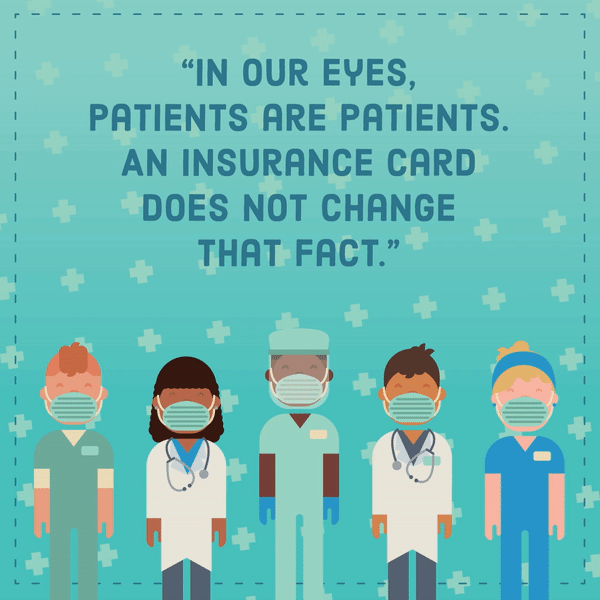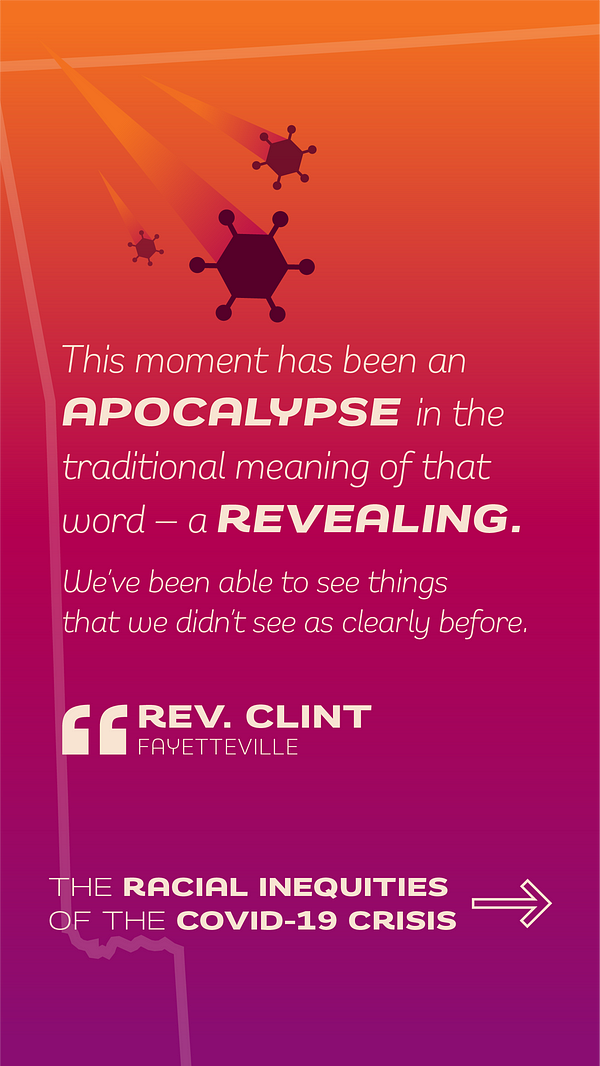
In the early days of quarantine, essential workers emerged as the gritty, resilient protagonist of the American COVID story. Yet in Arkansas, like in most states, essential workers make up a significant percentage of people working full-time jobs who are unable to meet their monthly bills due to low wages and rising household costs. These are the teachers, healthcare staff, childcare providers and manufacturing workers whose lives have been disproportionately impacted by COVID-19 and its impact on health and finances. Reimagine Arkansas, a statewide storytelling project supported by the Winthrop Rockefeller Foundation, is making sure the voices of these essential workers inform the crucial decisions being made today and in the future. “Reimagine is based on the principle that those closest to the challenges are the ones closest to the solutions,” said the project’s creator, Sara Bishop.
Reimagine Arkansas brings essential workers together for small, facilitated conversations that are powered by Local Voices Network. The conversations are shared with creatives to help activate the public’s imagination about what this moment has revealed and what it has made possible. “Pairing the voices of essential workers with inspired graphics helps bring these stories to life and move them across a multitude of diverse audiences,” explained Bishop. “It also gives us the opportunity to highlight the work of Arkansas artists and engage them in causes that are important to them.”

Why the focus on the creative economy?
The initiative also supports capacity-building for other organizations that are focused on equity. Audio links and graphic assets are pulled together in the form of “constellation” kits and distributed among nonprofit and advocacy groups to raise awareness about particular issues. The kits offer ready-to-send content for communicators working on related causes. Creative common licensing of the images makes them easy to share. And the word is getting out. Elements from the first kit, focused on frontline advocates, reached over 70,000 people.
The most recent kit features conversations with Arkansas healthcare workers. The stories are rich and varied. Rebecca, a nurse, expressed a desire for continued compassion. Lacey shared how multidisciplinary teams at hospitals are collaborating in innovative ways to meet the moment of need. Melanie offered her belief that healthcare workers and patients are in this together. Irvin talked about the challenges faced by workers working in the poultry industry under a punitive points system.
Why conversations?

Bishop noted the pervasiveness of monologues in our public discourse. “We don’t get a lot of context in the content we take in on a regular basis. These are context-heavy conversations. When you allow people to dig into that, empathy becomes more possible,” Bishop said. “Recurring themes and values across diverse audiences emerge: everyone wants what’s best for their families, everyone wants the people they care about to live happy, productive lives. The context of these conversations is humanizing in a way that most of the usual noise is not.”
“If we are to imagine a better future, then we have to dare to encounter others different from ourselves and Local Voices Network provides the platform and framework to do so. We are thrilled to join a larger network of like-minded peers and entities organized by LVN and be part of a timeless yet innovative initiative that sees conversations between humans as the foundation to healthy, vibrant communities where all feel valued, heard and connected.”
What’s next?
Over the next few weeks, Reimagine Arkansas will be hosting conversations with teachers, child care providers, renters and affordable housing advocates about the impact of COVID-19 on their lives, jobs, and communities. So how will we know if these conversations impact Arkansas’ future? Unlike other listening initiatives, Reimagine intends to track the reach of participants’ voices by demonstrating how far and wide their conversation traveled, what it inspired and how others — journalists, bloggers, influencers, decision-makers and advocates — are responding. In this way, the constellation kits are designed to be living maps that demonstrate the trajectory and impact of one person sharing their experiences and perspectives with others.
The project is also gathering information and stories relevant to workers still on the front lines, such as poultry workers. According to Michelle, a participant in a recent conversation, workers receive points for being late or missing work (too many points, your job is at risk). Without access to accurate information about their protections during COVID-19, or afraid of losing their jobs, workers are showing up to work sick. This is where, Bishop concluded, “We want to connect things that are happening at the state level around those issues to people standing up and sharing their voice.” But, critically, it is also driven by the community, like the solutions generated by people whose voices are often ignored.